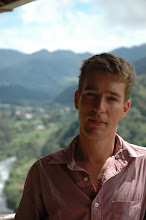All Going Pear-Shaped
It was about time something went wrong and in China our extended run of good luck finally gave out. I should have read the omen better when England lost the first Test while we were still in Bishkek, forcing Graeme and I to stand up in front of the whole new group at breakfast to sing Waltzing Matilda. We even conspired to lose the match early enough for Ron, our Aussie friend who won the said bet, to still be around to enjoy the show. All the same, it was sad to wave him and others off after a lot of fun together over the past couple of months. Bishkek was also where I found out I can't go to Iran in the autumn due to visa problems, a genuine blow.
Our journey into China was a gruelling 13 hour drive across a largely desolate mountain landscape with nothing but marmots to keep us company. It's quite a squeeze on Tonka these days with 25 of us aboard plus guides, though thankfully it's shaping up to be a great new group. At the final stage of the Chinese border (it's about 100km across with five checkpoints) we had to abandon Tonka which was impounded awaiting higher authority to proceed. Three days later it's still there with no hope of seeing it until at least Thursday (today is Saturday). In China, we have discovered to our cost, nobody can take an independent decision without deferring to the boss, which isn't great news when he's on holiday. Leaving Riki at the border, the rest of us rocked into Kashgar gone 11pm to be greeted incongriously by a band of dancing girls on the steps of the hotel and a team of receptionists who clapped us into the building.
The hotel is at least splendid and as the former Russion consulate played a key role in 'The Great Game'. This was a sort of proto cold war played out in the late 19th century between Britain and Russia; Britain ever fearful that Russian expansionism in Central Asia would lead them to the borders of British India and perhaps beyond, and the Russians more or less fearing the British would beat them to bagging the few remaining bits they hadn't conquered yet. As the westernmost outpost of a moribund Chinese Empire, Kashgar became a key outpost and listening station for both countries and a veritable hotbed of spies. It was also a base for many of the great expeditions to uncover the lost cities of the ancient Silk Road overwhelmed by the encroaching sands of the Taklamakan Dessert - the archaeological plunderings of Sir Aurel Stein and others that fill the rooms of the British Museum all came by this way.
Just as soon as we'd arrived in Kashgar we were off again (now in a coach) southwards down the Karakorum Highway towards Pakistan. This must be one of the most spectacular roads on earth taking you through and over the Pamir Mountains at over 4000m at our highest pass, with immense snow and glacier encrusted mountains either side rising to over 7500m. It was astonishingly beautiful in perfect sunshine with the clouds clearing off the peaks as we passed beneath. Unfortunately, the road itself was in appalling condition with frequent washed out sections and detours, so with a puncture to boot, a seven hour journey to Taxkorgan turned into a 12 hour epic. The destination, the Tajik centre in China, was anticlimatic, and several people were suffering the next day through sickness that might have been related to altitude (though it has to be admitted that the local beer was also rather stong). The return journey was a nightmare which turned into a farce when our guide refused to countenance a return direct to Kasgar rather than a stop-over at a total rip-off yurt encampment beside a famous mountain lake. Again inability to be flexible without reference to superiors was to blame, together with a typical unwillingness in this part of the World for local men to be able to deal with the concept of a woman leading our trip. Needless to say, Claire won out in the end after some lengthy negotiation and we found ourselves back in Kashgar thank goodness.
Interestingly, the transition to China has been much less abrupt in terms of the look and feel of places, than it has been in terms of rules and regulations. The people here are predominantly Uighar, with some Uzbek and Tajik, though an economic upturn in Kashgar is drawing ever more Han Chinese westwards. The look of the city and dress of the people is very Central Asian, though of course you notice the presence of Chinese Characters on buildings everywhere, and there is a distinctly Chinese flavour to much of the cuisine. Ordering food can be problemmatic since invariably only about 70% of what was ordered ever turns up, and what does arrive tends to arrive all at once regardless of any structuring of the menu in terms of courses. All rather amusing really. One thing I do like is the traffic lights and pedestrian crossings here which count down in seconds until you are allowed to proceed or cross. Surprisingly, people don't seem to give into the temptation to sit on the clutch as the green light beckons, especially not the donkey drawn carts!
Tomorrow we visit the famous Sunday market reckoned to be the best in Central Asia, and then onwards by coach along the northern Silk Road skirting the Taklamakan towards Turpan, the second lowest place on Earth at -156m and the hottest in China. Interested to see what goes tits up next.

